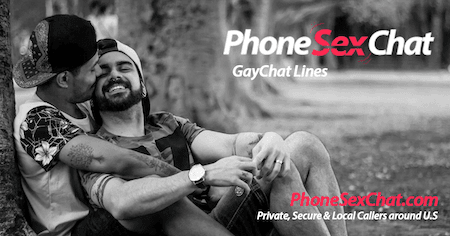
Commitment in a Relationship
Commitment in a relationship can look like many different things, from showing interest in someone, to making plans and looking forward to a future together. To help you understand what commitment looks like in a relationship, we’ve gathered a list of examples below.
What Commitment in a Relationship Is
1. It’s about showing interest in someone.
When you’re committed to someone, you’re not only interested in them but also show it actively. Showing interest means caring about their wants and needs, both inside and outside the relationship, and giving them the attention they deserve.
Commitment also involves taking an interest in things that matter to them, connecting with them even if you’re not familiar with those specific things. In a committed relationship, there are numerous ways to show interest in your partner and their life, which will most likely come naturally.
2. It’s thinking about both people in the relationship, not just yourself.

In a committed relationship, your perspective expands beyond self-interest; you think about your partner, and about both of you as a whole. It’s about understanding individual needs as well as the needs of the relationship. You become more mindful of how your actions and decisions affect your partner, proceeding with greater caution because you care about the impact on them.
3. It’s respecting the person you’re with.
Being committed to someone means you are exclusive with that person; you’re not dating around anymore, nor are you looking to get to know new people romantically. This requires respecting the person you’re with and avoiding crossing any lines that could hurt the other person or get you into trouble.
Navigating a committed relationship can be tricky if you’ve never experienced one before, but it becomes a lot easier when you don’t put pressure on yourself. Simply remind yourself to respect certain boundaries.
4. It’s having plans, goals, and looking forward to a future together.
When you are in a committed relationship, you’ll notice that you have lots of plans with this person. These aren’t only short-term plans, like what you’re going to do this weekend or events happening a month from now. In a committed relationship, you make long-term plans, such as how you’ll be spending the holidays, future travel plans that are months away, or maybe even when you’d like to move in together.
As time goes on and your relationship develops more, you’ll start planning bigger steps towards a future together. This isn’t something that happens in a casual relationship, because in a casual relationship, you’re not focused on being committed to one specific person. These are experiences you will have in a committed relationship.
5. It’s filling them in on your day.
A committed relationship thrives on good communication. This means not only being able to have healthy discussions and disagreements without disrespecting or hurting the other person’s feelings but also engaging in solid conversations about your daily life.
Since you don’t see your partner every moment of the day, it’s important to have conversations about what happened in your life that day and to update your partner on important events. In a committed relationship, this kind of sharing happens naturally because both partners are interested in staying up-to-date with each other and take an active interest in each other’s activities.
6. It’s always sticking around regardless of the situation.
Relationships can be messy, and it’s inevitable that you won’t always see eye to eye with your partner. Disagreements are common, and sometimes you might face fights that feel like they could make or break your relationship. In a committed relationship, however, you don’t give up at the first sign of difficulty or turbulence.
Commitment means sticking around no matter what and talking things through. It may involve giving each other space at times, allowing for moments to think things through, but not ending things just because they get hard.
In contrast, casual relationships often fall into a pattern of being ‘on again and off again’. This isn’t the case in a committed relationship, where perseverance through challenges is key.
7. It’s sharing responsibilities.
In a committed relationship, partners share both small and big responsibilities. This can range from being emotionally responsible for each other to sharing the care of a pet or jointly managing a home.
As the relationship progresses, these responsibilities tend to increase in both size and number. This sharing and growing together in handling responsibilities is a fundamental part of being in a committed relationship.
8. It’s making sacrifices for each other.
In a committed relationship, making sacrifices for one another is a common occurrence. The significance of these sacrifices can vary. For instance, you might find yourselves taking turns deciding where to spend the holidays, or choosing which social plans to attend and which ones to miss.
It’s important to note that being in a committed relationship doesn’t mean you’re joined at the hip and can’t do things independently. However, there will be certain occasions or events where it’s important to be together.
9. It’s spending quality time together.
There’s a significant difference between just being with your partner and spending quality time with them. For example, being in the same room or sitting together on the same couch while both of you are on your phones doesn’t constitute quality time.
In such scenarios, you’re not actively engaging with each other or giving undivided attention. Quality time means being fully available to your partner, free from distractions. Many people don’t recognize this distinction, but in a committed relationship, the focus on quality time becomes much more pronounced.
Faqs

When should you commit to a person?
You should consider committing to someone when you find yourself genuinely interested in them. This interest often manifests as caring about them more than others and being deeply curious about them as a person. Another sign is frequently thinking about them, particularly about how certain events or actions would affect them or make them feel. These are indications that you should commit to them.
This sense of commitment tends to emerge naturally and becomes a part of your everyday life. While many people prefer to have a conversation to confirm the seriousness of the relationship and make it official, you’ll probably sense your commitment even before this discussion. True commitment doesn’t necessarily require a formal conversation, although it’s beneficial to ensure you both are aligned and on the same page.
Should you have to ask someone to commit to you?
No, you shouldn’t have to ask someone to commit to you. Commitment should be something you feel the other person is already doing, followed by a conversation to confirm that you’re both on the same page. You might have a conversation about becoming an official boyfriend or girlfriend, but it shouldn’t require much more than that.
If you find yourself having to ask or even beg someone to commit, it might not bode well. When commitment needs to be requested, it often means the other person isn’t truly interested in a committed relationship and might let you down or be unreliable.
How long does it take to commit to someone?
The time it takes to commit to someone varies greatly, depending on several factors such as age, relationship experience, current life stage, and personal goals. For instance, someone who is older or has more relationship experience may be ready to commit faster than someone who doesn’t have these attributes.
Similarly, those seeking a serious relationship with the aim of settling down might find themselves ready to commit sooner than someone who isn’t looking for such a relationship. There is no right or wrong timeframe for commitment; it’s entirely dependent on your individual circumstances and where you are in life.
What if I’m afraid of commitment?
It’s okay to be afraid of commitment. You’re right in thinking that things will change if you commit to someone, because they will. Your decisions will no longer only affect you; they will also impact the person you’re committed to. Being committed means having someone else to think about and care for, so feeling a big change is normal, but it’s nothing to be afraid of.
If you really love and care about this person, committing to them is a step in the right direction. Gradually, you’ll come to see that, although it’s a big responsibility, it really isn’t a big deal.
In Conclusion
Understanding what commitment in a relationship entails can be eye-opening. You may realize that you’ve been in a committed relationship all along, even without an official conversation to label it as such.
Recognizing these signs of commitment might lead you to conclude that you’re ready to have that conversation, affirming your readiness for a committed relationship.
This article was written by Gianluca Petrozzi and published on December 3rd, 2023, and revised on December 6th, 2023, to include additional relevant information provided by industry experts.











Comments